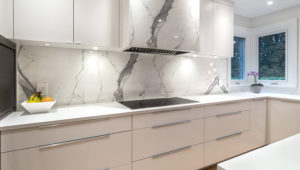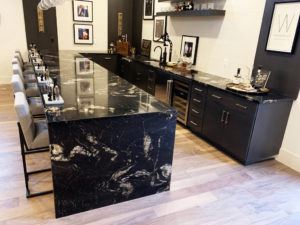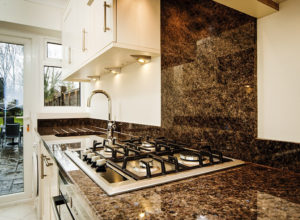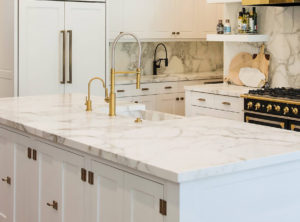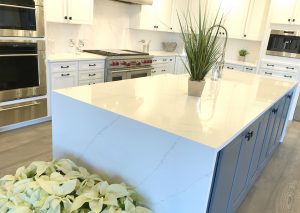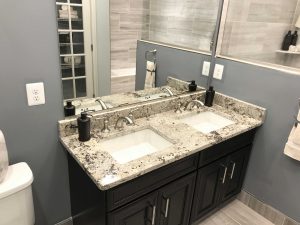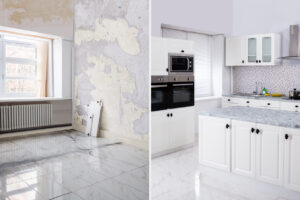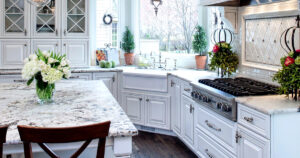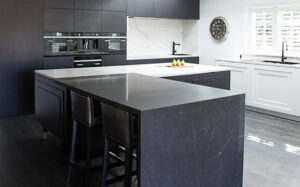Choosing your countertop is arguably one of the most important decisions you’ll make in renovating or designing your kitchen. Your countertops need to be able to hold up to everyday wear and tear, and you’ll want something that’s beautiful and in keeping with your overall kitchen design, as well. There are many different options to consider, with quartz vs granite being among the most popular. Both stones come in a wide variety of colors with varying degrees of veining and speckling available, and both are durable and impressive—but there are differences. Here are some tips to help you decide which is best for your lifestyle, budget, and tastes:
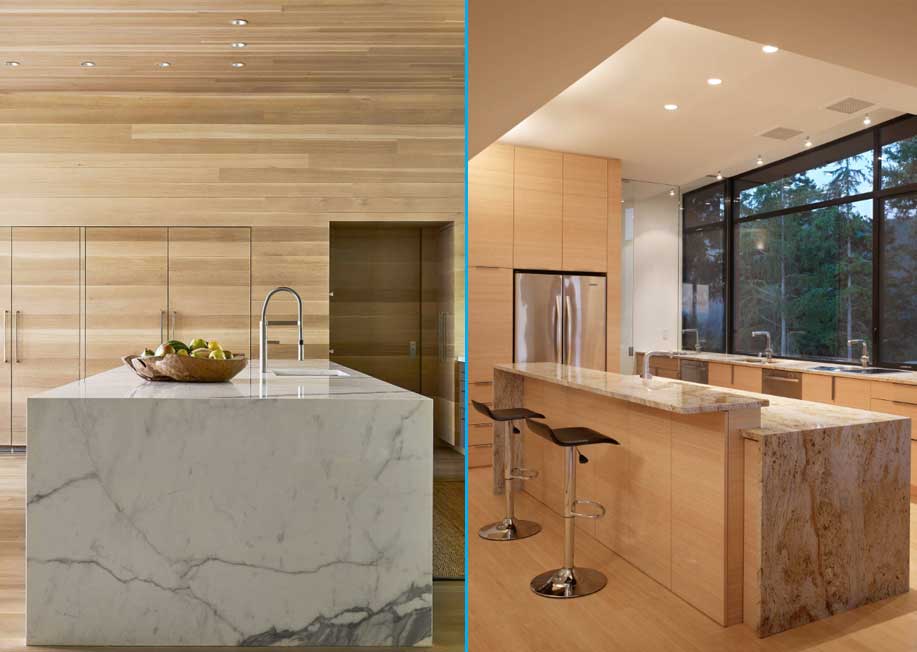
Photo Credit | Coats Homes & Prentiss Balance Wickline Architects
Granite is a natural stone, while quartz is engineered
One point to consider is that granite is a natural stone, while quartz is engineered—which explains many of the differences between the two materials. Because granite is naturally occurring, each slab is a bit different. Many people consider this one of granite’s assets, as it can be exciting to see the beautiful variation from slab to slab. At Sky Marble and Granite in Sterling, VA, you can even hand-pick the slab or slabs of your choice. The veining that is a natural feature of granite is hard to replicate in engineered stone, and the irregularities in granite’s pattern contribute to its sense of uniqueness and luxury. However, if you prefer a consistent pattern or edgier, more modern look, quartz might be the best choice due to its regularity and its availability in more unusual and artificial colors.
Both granite and quartz are resistant to chemicals, scratching, and heat
Both granite and quartz are resistant to chemicals, scratching, and heat. Either stone can host many years of family meals and dinner parties while retaining its original beauty, but granite is still a bit harder-wearing than quartz. Quartz can be damaged by extreme heat, so care should be taken with very hot pots and pans and heat-producing tools, such as hair straighteners. Granite, on the other hand, can take the heat.
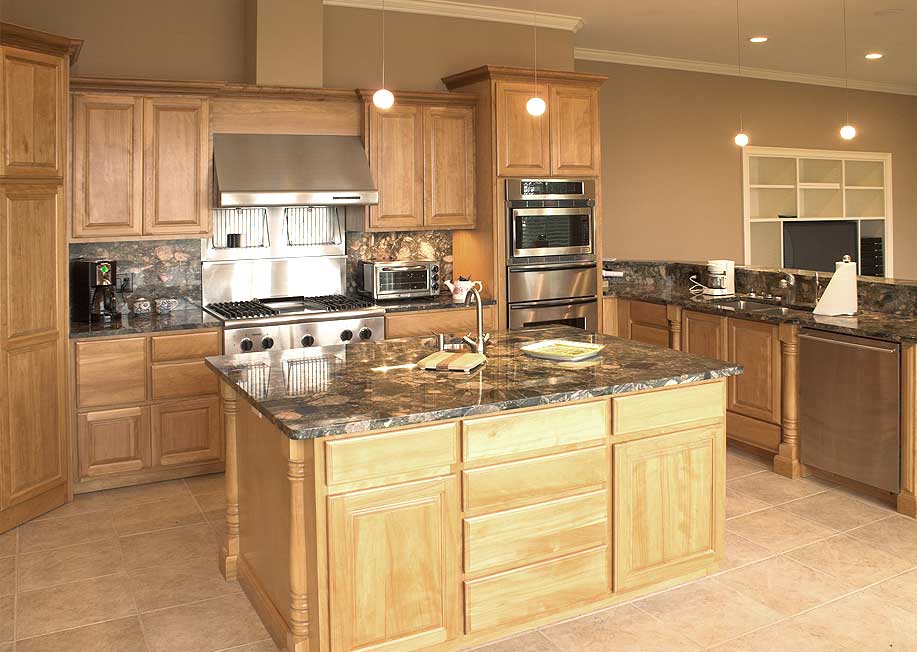
Photo Credit | Sky Marble and Granite
Heat-Resistant
While granite is more heat-resistant than quartz, it does require a bit more upkeep. Granite is a porous stone, which means that it needs to be sealed and regularly resealed. It’s still relatively low-maintenance, but quartz is virtually no maintenance. As a non-porous stone, it doesn’t need sealing—just regular cleaning will suffice to keep it in excellent condition for many years.
Both granite and quartz also offer the opportunity to choose from different edge styles and to incorporate unique and attractive features such as undermount sinks or full-height backsplashes. Waterfall edges, for example, are a beautiful design feature that allows you to really show off a stone you love—whether it’s granite or quartz.
Ultimately, both granite and quartz are top-quality products that will look beautiful and function well in your kitchen, bathroom, or whatever other space you may have in mind, but each does have its pros and cons. If you’re still unsure as to which is best for your upcoming project, don’t hesitate to seek out the support of our designers at Sky Marble and Granite in Sterling, VA. Our team can help you select just the right stone to turn your kitchen ideas into reality.



